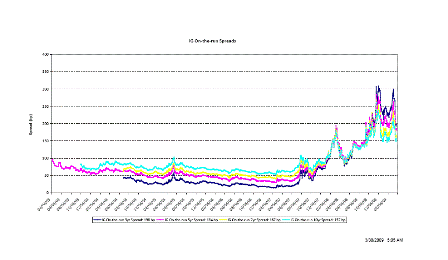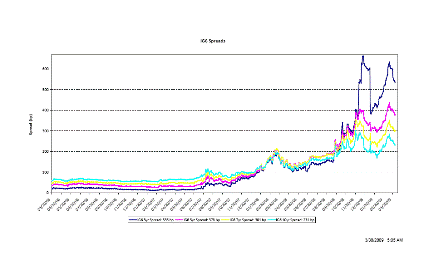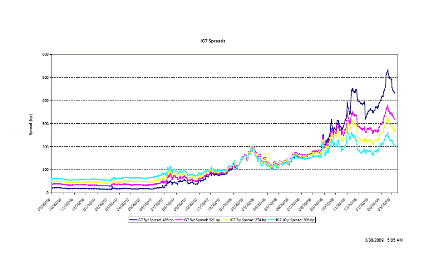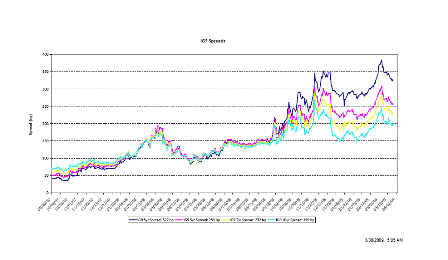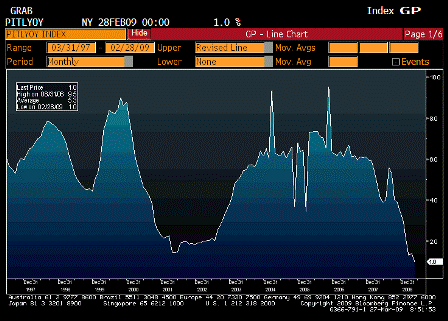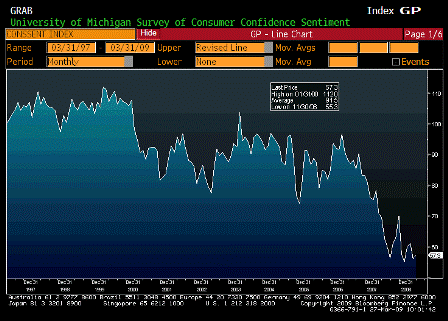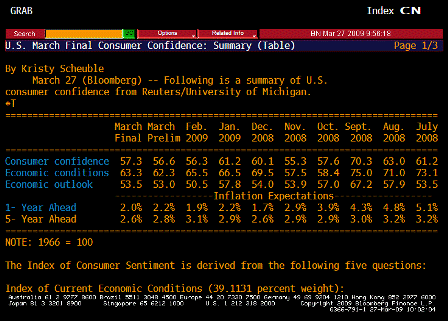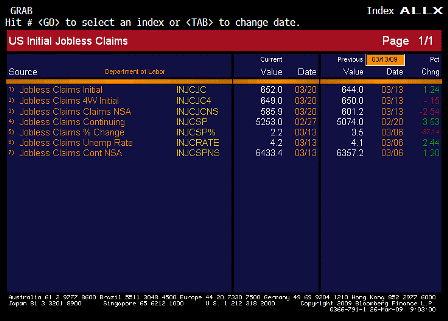[Skip to the end]
by Robert Hutton and Mark Dean
Mar 26 (Bloomberg) — The first failed British bond auction in more than seven years leaves Prime Minister Gordon Brown’s reputation for economic competence even more tarnished as he battles recession and a rising tide of voter anger.
Brown, who had the backing of 30 percent of the electorate in a ComRes Ltd. poll last week, must now cope with what amounts to a vote of no confidence by investors in his ability to end the recession. Bank of England Governor Mervyn King, his ally for much of the past decade, warned a day earlier that there’s no more money for further spending.
Wrong! Spending is not inherently constrained by revenues.
King must not understand how the monetary system works.
“The notion that Brown is leading us to the promised land is laughable,†said Ruth Lea, economic adviser to the Arbuthnot Banking Group Plc in Solihull, England. “He cannot get to grips with how other people see this country now, as the sick man of Europe.â€ÂÂ
Yes, that’s how most see it, but they don’t understand how the monetary system works.
The Treasury yesterday tried to sell 1.75 billion pounds ($2.6 billion) of 40-year gilts and got 1.63 billion pounds of bids, a sign that investors are reluctant to finance his record borrowing.
No, a sign at that point in time that investors didn’t want to buy that many bonds of that maturity.
This does not constrain government spending.
“Brown’s strategy now looks terribly fragile,†said Mark Wickham-Jones, a professor of politics at Bristol University. “His situation is economically extremely uncertain, politically risky and this auction again highlights how we are now in un-chartered territory.â€ÂÂ
He doesn’t seem to understand the monetary system either.
G-20 Tour
The auction failure couldn’t have come at a worse time for Brown, who set off on a five-day tour this week to win support for his economic-reform plans before a summit of leaders from the Group of 20 nations he’s hosting in London on April 2. He’s in Brasilia today and due to visit Chile after speaking in New York yesterday.
He does understand that he does not need their support for anything regarding the UK economy.
German Chancellor Angela Merkel has resisted Brown’s push for a new fiscal stimulus, saying her country already has committed to a boost worth 4.7 percent of gross domestic product.
Germany does have funding constraints the UK doesn’t have as per the eurozone institutional arrangements.
Brown’s Agenda
The government says the G-20 will focus on stabilizing financial markets, reforming global financial institutions and helping people get through the recession. Brown wants them to agree on a fiscal stimulus to support growth, something King warned might not be affordable.
More evidence King doesn’t understand the monetary system. ‘Affordable’ is not an applicable concept regarding nominal spending with a non convertible currency.
“Given how big these deficits are, I think it would be sensible to be cautious about going further in using discretionary measures to expand the size of those deficits,†King said in Parliament on March 24.
Brown’s spokesman Tom Hoskin said yesterday the prime minister wasn’t troubled by the auction failure. “There have been other auctions that have been uncovered in other countries,†he told reporters in London. “The underlying strength of the market in gilts is there.â€ÂÂ
More to the point, it’s not a necessary condition for deficit spending. The economics of deficit spending are the same whether or not guilts are sold. The difference is long term rates are higher if the Treasury issues long term securities. They should listen to Goodhart and not issue or sell them at all.
[top]

